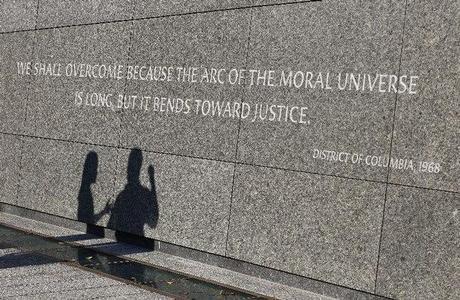
Isn't it fascinating that Maggie Gallagher can't quite seem to grasp — still, at this late date, after she admits that her nasty anti-gay politics have failed to sway the mind of America — that the culture's moral mind has shifted about the place of gay folks in the scheme of things? And not that she and other anti-gay activists who have spent years trying to make the lives of gay folks miserable have been shouted down and shut up, as she claims?
People have simply rejected the case that Maggie and her allies have wanted to make in the public square, as they've played every political trick in the book to game the system on the side of prejudice and discrimination, using gobs of money whose source they refuse to disclose in the process. People have seen the case that Maggie and her allies made in California (and Maine and Minnesota and in states across the country), with their campaign of well-funded lies claiming that children would be harmed if gay couples were permitted to marry civilly, for what it is: antithetical to the fundamental principles of American democracy. And, in the case of many people of faith, they've seen it as antithetical to everything their religious traditions stand for, at their best.
Maggie gives away her game early in her blog posting, when she says,
The version of America we were born into is no more. For the first time in American history being a faithful Christian (or Jew or Muslim) now calls into question in the public square in a new way one’s good citizenship.
It hasn't been about trying to understand what being a faithful Christian (or Jew or Muslim) means in the challenging new cultural context of late-20th-century and early-21st-century America. It has been, rather, about stamping one's feet and insisting that one's mid-20th-century formulation of what it means to be Christian (and American: it's about "the version of America we were born into," after all) remain everyone's formulation of what it means to be a faithful Christian and an American.
The cultural framework is calling the shots here: what it means to be a faithful Christian is being equated with a mid-20th-century cultural definition of the Christian faith that many faithful Christians have long since discarded, with very good reason — notably, because it's harmful to women, toxic to gay people, and exceptionally callous towards those who don't fit the ideal models proposed by the conservative white heterosexual Christians who used to control the definition of what it means to be a faithful Christian and good American, but who no longer exert such control in the culture.
The sense of privilege and entitlement running underneath Maggie Gallagher's definition of herself and others like her as the model of a faithful Christian is rather astonishing. In commenting on Maggie's blog posting, Steven Ingen concludes, "All that appears left for Maggie now is her own evolution."
But how is such moral evolution possible, when one has constructed a moral world in which one's own presuppositions, one's own cultural norms, one's own historically conditioned worldview, are expected to count as everyone's presuppositions, cultural norms, and worldview? And are equated with gospel truth — something that stands against all historically conditioned cultural formulations?
I suspect that Maggie's "evolution" may be a very long time coming.
The photo, from the Martin Luther King, Jr., memorial in Washington, D.C., at its opening is by Charles Dharapak of AP.

